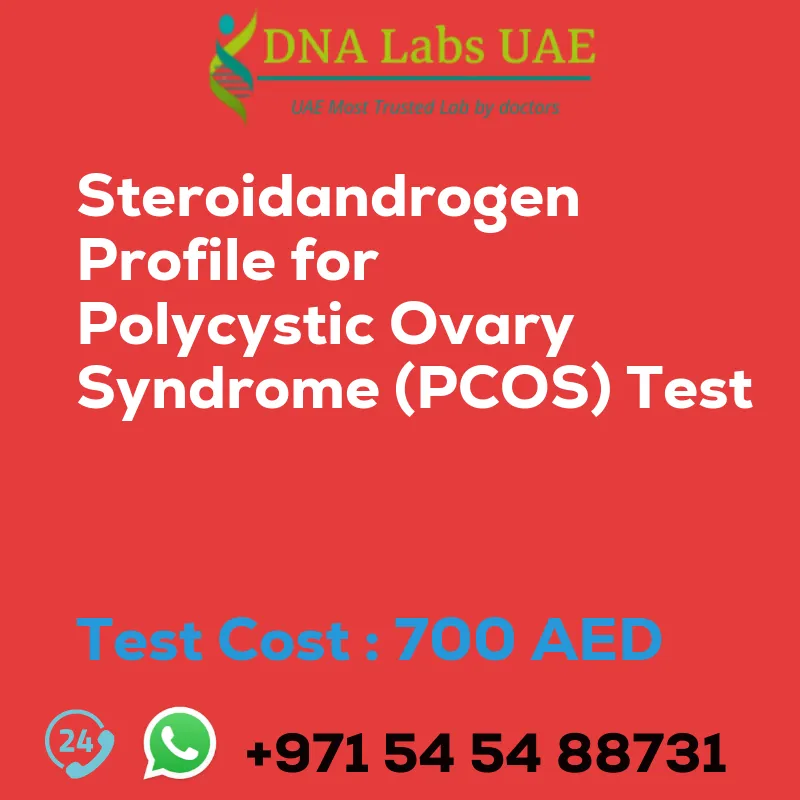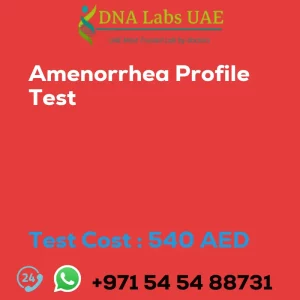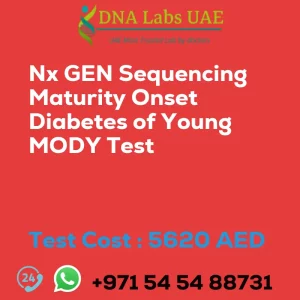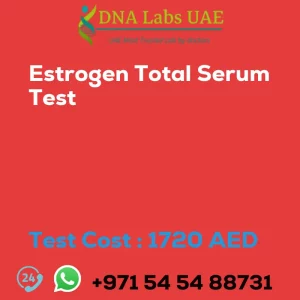STEROIDANDROGEN PROFILE FOR POLYCYSTIC OVARY SYNDROME PCOS Test
Test Cost: AED 700.0
Test Components:
- Androstenedione
- DHEAS
- Testosterone, Total
Sample Condition:
2 mL (1 mL min.) serum from 1 Red Top (No Additive) tube. Do not use SST gel barrier tubes. Ship refrigerated or frozen. Diurnal variation present; take sample between 8-10 am OR 4-6 pm. Specify time and date on specimen container and test request form.
Report Delivery:
Sample Mon / Thu by 9 am; Report Wed / Sat
Method:
LC-MS/MS
Test Type:
Disorders of Adrenal Gland
Doctor:
Endocrinologist, Gynecologist
Test Department:
GENETIC
Pre Test Information:
Diurnal variation present; sample will be taken between 8-10 am OR 4-6 pm.
Test Details:
Polycystic ovary syndrome (PCOS) is a hormonal disorder that affects women of reproductive age. It is characterized by the presence of multiple cysts on the ovaries, irregular menstrual cycles, and excessive production of androgens (male hormones).
Here is a steroid/androgen profile for PCOS:
- Testosterone: Women with PCOS often have elevated levels of testosterone, which can lead to symptoms such as acne, excessive hair growth (hirsutism), and male-pattern baldness.
- DHEA-S: DHEA-S (dehydroepiandrosterone sulfate) is a precursor to testosterone and other androgens. Elevated levels of DHEA-S are commonly seen in women with PCOS.
- Androstenedione: Androstenedione is another precursor to testosterone. Increased levels of androstenedione are often observed in women with PCOS.
- LH (luteinizing hormone): PCOS is associated with an imbalance in the levels of luteinizing hormone and follicle-stimulating hormone (FSH). Women with PCOS typically have higher levels of LH compared to FSH. This hormonal imbalance disrupts normal ovulation and leads to the formation of ovarian cysts.
- FSH (follicle-stimulating hormone): As mentioned above, women with PCOS often have lower levels of FSH compared to LH. This imbalance contributes to the irregular menstrual cycles and lack of ovulation seen in PCOS.
- SHBG (sex hormone-binding globulin): SHBG is a protein that binds to testosterone and other sex hormones, regulating their availability in the body. Women with PCOS often have decreased levels of SHBG, leading to higher levels of free testosterone.
It is important to note that the steroid/androgen profile for PCOS may vary between individuals. Diagnosis of PCOS typically involves a combination of clinical symptoms, hormone testing, and ultrasound imaging of the ovaries. A comprehensive evaluation by a healthcare professional is necessary to accurately diagnose and manage PCOS.
| Test Name | STEROIDANDROGEN PROFILE FOR POLYCYSTIC OVARY SYNDROME PCOS Test |
|---|---|
| Components | *Androstenedione*DHEAS *Testosterone, Total |
| Price | 700.0 AED |
| Sample Condition | 2 mL (1 mL min.) serum from 1 Red Top (No Additive) tube. Do not use SST gel barrier tubes. Ship refrigerated or frozen. Diurnal variation present; take sample between8-10 am OR 4-6 pm. Specify time and date on specimen container and test request form. . |
| Report Delivery | SampleMon / Thu by 9 am; Report Wed / Sat |
| Method | LC-MS/MS |
| Test type | Disorders of Adrenal Gland |
| Doctor | Endocrinologist, Gynecologist |
| Test Department: | GENETIC |
| Pre Test Information | Diurnal variation present; sample will be taken between8-10 am OR 4-6 pm. |
| Test Details |
Polycystic ovary syndrome (PCOS) is a hormonal disorder that affects women of reproductive age. It is characterized by the presence of multiple cysts on the ovaries, irregular menstrual cycles, and excessive production of androgens (male hormones). Here is a steroid/androgen profile for PCOS: 1. Testosterone: Women with PCOS often have elevated levels of testosterone, which can lead to symptoms such as acne, excessive hair growth (hirsutism), and male-pattern baldness. 2. DHEA-S: DHEA-S (dehydroepiandrosterone sulfate) is a precursor to testosterone and other androgens. Elevated levels of DHEA-S are commonly seen in women with PCOS. 3. Androstenedione: Androstenedione is another precursor to testosterone. Increased levels of androstenedione are often observed in women with PCOS. 4. LH (luteinizing hormone): PCOS is associated with an imbalance in the levels of luteinizing hormone and follicle-stimulating hormone (FSH). Women with PCOS typically have higher levels of LH compared to FSH. This hormonal imbalance disrupts normal ovulation and leads to the formation of ovarian cysts. 5. FSH (follicle-stimulating hormone): As mentioned above, women with PCOS often have lower levels of FSH compared to LH. This imbalance contributes to the irregular menstrual cycles and lack of ovulation seen in PCOS. 6. SHBG (sex hormone-binding globulin): SHBG is a protein that binds to testosterone and other sex hormones, regulating their availability in the body. Women with PCOS often have decreased levels of SHBG, leading to higher levels of free testosterone. It is important to note that the steroid/androgen profile for PCOS may vary between individuals. Diagnosis of PCOS typically involves a combination of clinical symptoms, hormone testing, and ultrasound imaging of the ovaries. A comprehensive evaluation by a healthcare professional is necessary to accurately diagnose and manage PCOS. |







